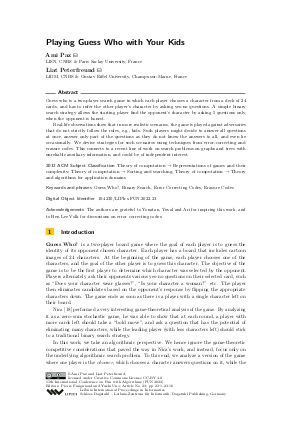LIPIcs.FUN.2022.23.pdf
- Filesize: 0.88 MB
- 10 pages

 Creative Commons Attribution 4.0 International license
Creative Commons Attribution 4.0 International license





















Feedback for Dagstuhl Publishing